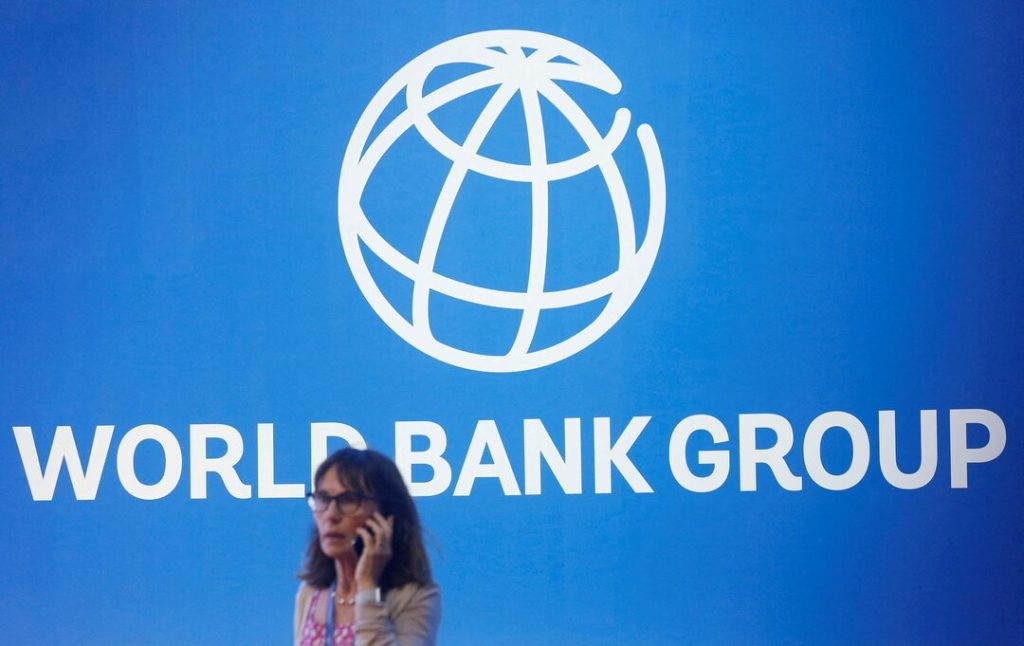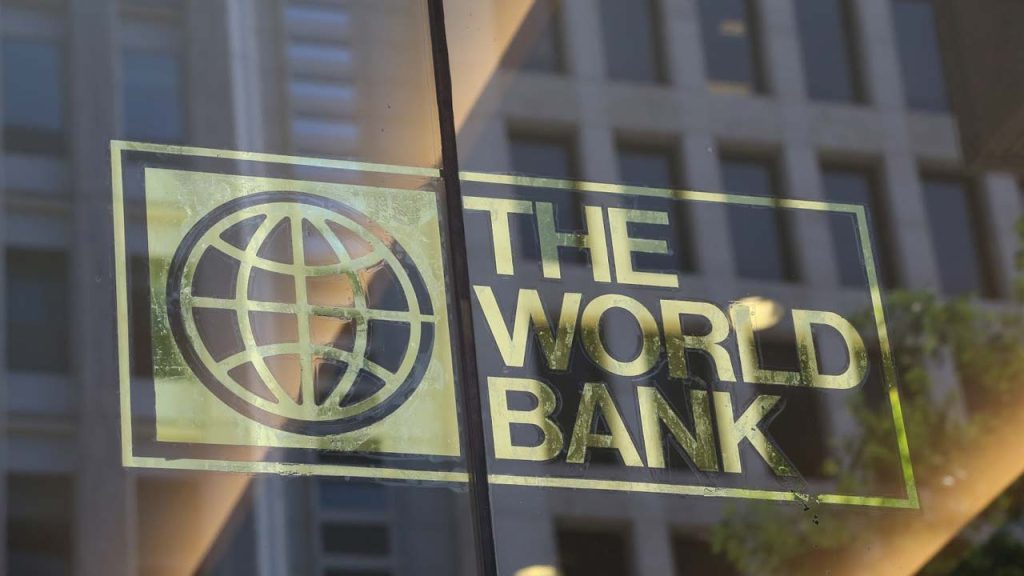Nigeria’s rising debt burden has sparked urgent calls for immediate action to prevent further economic deterioration. Investment analysts at Afrinvest have warned that the country’s debt profile requires decisive intervention, as outlined in their latest macroeconomic report titled Nigeria’s Debt Statistics… High Risk or Not?
The report, which examined Nigeria’s fiscal standing in light of the International Monetary Fund’s (IMF) assessment, highlighted growing concerns over the sustainability of the nation’s debt. However, the IMF, represented by its First Deputy Managing Director, Gita Gopinath, offered a relatively optimistic perspective, categorizing Nigeria’s debt level as “moderate” rather than “high risk.”
IMF’s Position: Nigeria’s Debt Risk is Moderate
During her recent visit to Nigeria, Gopinath presented the IMF’s annual debt sustainability assessment for the country. According to her, the IMF’s 2024 evaluation classified Nigeria’s risk of sovereign stress as moderate, dismissing fears that the country’s debt was at an immediate crisis level.
“We (IMF) assess debt sustainability for countries every year, and we did this for Nigeria in our report for 2024. Our assessment was that the risk of sovereign stress for Nigeria is moderate and not high risk,” she stated.
While Gopinath’s remarks may have provided some reassurance, she emphasized the need for structural reforms to improve Nigeria’s fiscal health. She stressed that optimizing revenue through stronger tax collection, plugging financial leakages, and maintaining fiscal discipline would be key to ensuring long-term economic stability.
Afrinvest Raises Alarm Over Nigeria’s Debt Growth
Despite the IMF’s relatively moderate assessment, analysts at Afrinvest strongly cautioned that Nigeria’s debt burden demands immediate corrective measures. They pointed to the latest figures from the Debt Management Office (DMO), which reveal a sharp rise in total public debt to N142.3 trillion as of Q3 2024—the highest nominal level in the country’s history.
The surge in debt was attributed to two major factors:
- A widening budget deficit, which has led the government to borrow more to finance its expenditures.
- The depreciation of the naira, which has significantly increased the cost of external debt.
Afrinvest’s report further broke down the figures, noting that domestic debt rose by 3.3% quarter-on-quarter to N73.4 trillion, marking a 24.2% year-to-date increase. Despite this, local debt remains within the DMO’s 70% domestic debt mix cap, accounting for 51.6% of total public debt.
On the external side, the situation appears even more concerning. External debt surged by 9.2% quarter-on-quarter to N68.9 trillion, reflecting an 80.2% increase year-to-date, mainly driven by naira depreciation. The local currency fell by 11.9% in Q3, averaging N1,579.22 per US dollar—a trend that continues to worsen Nigeria’s foreign debt obligations.
Debt-to-GDP Ratio Exceeds Safe Limits
Another worrying indicator highlighted in Afrinvest’s report is Nigeria’s public debt-to-GDP ratio, which has now reached 52.8%. This figure, based on 9M 2024 debt and full-year nominal GDP, exceeds the 40% benchmark set in the 2020–2023 Medium-Term Debt Management Strategy (MTDS).
More alarmingly, the debt-to-GDP ratio is inching closer to the 55% risk threshold for developing economies. Experts caution that exceeding this threshold could increase Nigeria’s default risk, trigger credit rating downgrades, and deter foreign investment, exacerbating the country’s economic struggles.
2025 Budget and High Debt Servicing Costs
One of the major concerns heading into 2025 is Nigeria’s high debt servicing costs. The 2025 national budget has allocated a significant portion to debt repayment, raising questions about the sustainability of the country’s fiscal policies.
Speaking at the KPMG 2025 Budget Day event on Arise TV, Nigeria’s Minister of Budget and Economic Planning, Atiku Bagudu, addressed concerns over the projected N14 trillion budget deficit.
He reassured stakeholders that the government is adopting “innovative financing strategies” to manage the deficit without relying excessively on borrowing from the Central Bank of Nigeria (CBN).
“Given what we saw, the innovative approaches to financing mean we do not have recourse to the Central Bank of Nigeria at all. Under no circumstance would the Central Bank exceed its legal limit of 5%. We are exploring alternative market-driven solutions, including issuing local bonds and leveraging investor confidence to sustain our debt service obligations,” Bagudu stated.
The minister further expressed optimism that improving economic conditions could reduce the actual amount spent on debt servicing in 2025.
Experts Warn of Fiscal Risks Amid Government’s High Spending
While the government maintains that its fiscal strategy is sustainable, some experts remain skeptical.
Jimi Ogbobine, Head of Agusto Consulting, a subsidiary of Agusto & Co., noted that the current administration under President Bola Tinubu is characterized by high government spending, which heightens concerns over the fiscal deficit.
At the 2025 Economic Roundtable hosted by Agusto & Co., Ogbobine identified debt sustainability as one of Nigeria’s top ten economic risks.
“For Nigeria, we have about ten key uncertainties in 2025, with debt sustainability being a major concern. Many argue that our political parties lack clear ideologies, but in practice, they do. This current government follows a big-government spending approach, which is why debt remains a critical issue,” he remarked.
He also referenced Nigeria’s Fiscal Responsibility Act, which suggests that the fiscal deficit should be capped at 3% of GDP. However, he clarified that while this is enshrined in the law, it is more of a guideline than a strict legal requirement.
The Path Forward: Can Nigeria Reverse Its Debt Trajectory?
Given the contrasting assessments from the IMF and Afrinvest, the key question remains: Can Nigeria reverse its rising debt trajectory before it becomes a crisis?
Economic analysts suggest the following strategic reforms to stabilize Nigeria’s debt situation:
- Improved Revenue Generation: Expanding the tax base, plugging revenue leakages, and ensuring compliance with tax laws will be essential in reducing the fiscal deficit.
- Prudent Government Spending: Cutting wasteful expenditures and focusing on priority sectors such as infrastructure, healthcare, and education can improve public sector efficiency.
- Monetary and Exchange Rate Stability: Addressing currency depreciation through policy stability and foreign investment incentives will help reduce Nigeria’s external debt burden.
- Debt Restructuring and refinancing: Seeking favorable repayment terms and restructuring existing loans could provide short-term relief while structural reforms take effect.
Conclusion
Nigeria’s debt situation remains a complex challenge with both opportunities and risks. While the IMF maintains that Nigeria is not at immediate high risk, local experts such as Afrinvest and Agusto & Co. warn that urgent action is needed to prevent further deterioration.
With the 2025 budget already highlighting significant debt servicing obligations, the focus must now shift to structural economic reforms that can enhance revenue, reduce excessive spending, and stabilize the economy for long-term growth.
The coming months will be critical in determining whether Nigeria can navigate its debt crisis effectively or whether further fiscal strain will push the economy towards a more precarious position.













